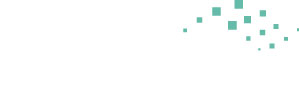Making a difference in digital health: these four students spent a tech-savvy summer

The best way to spend your summer? Most students will say enjoying the sun, sea, and beaches. Not for Sebastián, Hristo, Jane, and Fatemeh. Last month, Melexis hosted a Digital Health Internship program in Belgium, welcoming these four bright young minds from around the world. Guided by seasoned Melexis engineers, they were working on digital health innovations. Let's hear about their experiences, challenges, and dreams.

From a pool of applicants, Melexis has chosen Sebastián Ibarra Arregui (Peru), Hristo Bakardzhiev (Bulgaria), Jane Verduyn (Belgium), and Fatemeh Farajpourlar (Iran) for this internship. Let’s have a conversation together.
What inspires you to apply for this internship?
Jane, pursuing a master's in Rehabilitation Sciences and Physiotherapy, wanted to explore the technical side of healthcare. "In physiotherapy, I often feel frustrated by inefficient systems and outdated technology. As a health professional, I can impact lives directly, but I have little influence on the tools we use. This internship offers a chance to change that."
Hristo, with a background in software development, is drawn to the practical application of his skills. “I’ve always been a geek, fascinated by computers since I was a little boy. I really like developing cool, geeky stuff, but I also wanted to work on projects that have real-world value. This internship allows me to do just that.”
Where does your interest in digital health come from?
For Sebastián, it all began with a research field project in the Peruvian Amazon. “I once worked on a project exploring telemedicine solutions for remote areas in the jungle. This experience sparked my interest in digital health and inspired me to learn more about how technology can improve healthcare, particularly in under-resourced regions around the world, including my home country.”
For Fatemeh, in digital health, two fields of interest come together. “With a bachelor's degree in Biomedical Engineering and a master’s degree in Medical ICT, I’ve always been fascinated by the medical field. Now, I’m excited to focus on developing innovative solutions and exploring the practical applications of science in healthcare.”
What’s the internship like?
Jane explains: “Our goal is to develop an innovative product that enables continuous monitoring. We now focus on a solution that measures estradiol, the most active form of estrogen. Understanding estradiol is important for fertility treatments but also for bone health and cardiovascular conditions. By the end of the internship, we will deliver a comprehensive concept, covering both technological and business aspects.”
The experience of working on a real-world challenge brought Fatemeh a new perspective. “Science challenges us to move beyond assumptions and continually seek deeper understanding. It’s a field where the more you know, the more you realize there is yet to learn, which makes you humble.”
What went well, and what went not so planned?
Sebastián explains that combining different perspectives isn’t always easy. “We have such different backgrounds, cultures, and knowledge of various aspects. It was sometimes challenging to agree and make the right decisions as a team. However, I can now confidently say that we have found a great synergy as a team."
Fatemeh adds, “Understanding the business aspect was particularly challenging for me. I have a solid background in the technological and medical fields, but business strategy is a different realm. Learning to navigate this new area was a steep learning curve, but ultimately, it expanded my understanding and skill set."

Our four interns accompanied by Vincent Hiligsmann, VP Innovation at Melexis
What are you proud of?
Jane, who was a ‘newbie’ in the world of technology, is proud of the progress she made. “At the beginning, I felt a bit stressed due to my limited tech knowledge. To catch up with the team, I spent my evenings researching online and learning as much as I could. Now, I’m really proud of how far I’ve come.”
Hristo expresses his pride in the team effort: “We approached each obstacle with an open mind and supported each other through pitfalls, which led to the development of our best ideas and outcomes. That team effort is a valuable learning experience because you will also need that when you start working in a company like Melexis.”
If you could develop a breakthrough innovation in health care, what would it be?
Sebastián comes up with an innovation that might sound like ‘science fiction’, but who knows? “A brain-computer interface powered by AI to apply in neurological health care. This could revolutionize the treatment of conditions like dementia and cerebral palsy by using sensors and platforms to develop new rehabilitation techniques.”
With her background in physiotherapy, Jane has no doubt about which innovation she would like to introduce. “As arm and leg prostheses are still quite primitive nowadays, I would develop a prosthesis that fits seamlessly and provides more comfort to the user. With advanced sensors, we could create a prosthesis that moves in sync with people’s natural moving rhythm.”
If you had to describe this summer camp experience with an emoji, which one would it be?
🚀 Sebastián laughs and says: “Definitely the rocket emoji! Just as a rocket launch comes after thorough development and prototyping, our concept ‘launch’ will follow a similar process.”
🤠 Hristo does not have to think long about his question and chooses the cowboy, stating: “This experience is like an adventure, a rodeo ride. You discover new perspectives every day, and there is never a dull moment.”
Fostering a strong innovation culture
Vincent Hiligsmann, VP Innovation at Melexis, is inspired by the students’ work. “At Melexis, we love the fresh perspectives that young talents bring to our team. This summer, four passionate students from different backgrounds joined our Digital Health Internship and worked on real-world challenges together. Their enthusiasm and creativity have been key in exploring new approaches, and we are excited to see how their contributions will shape the future of digital health.”




